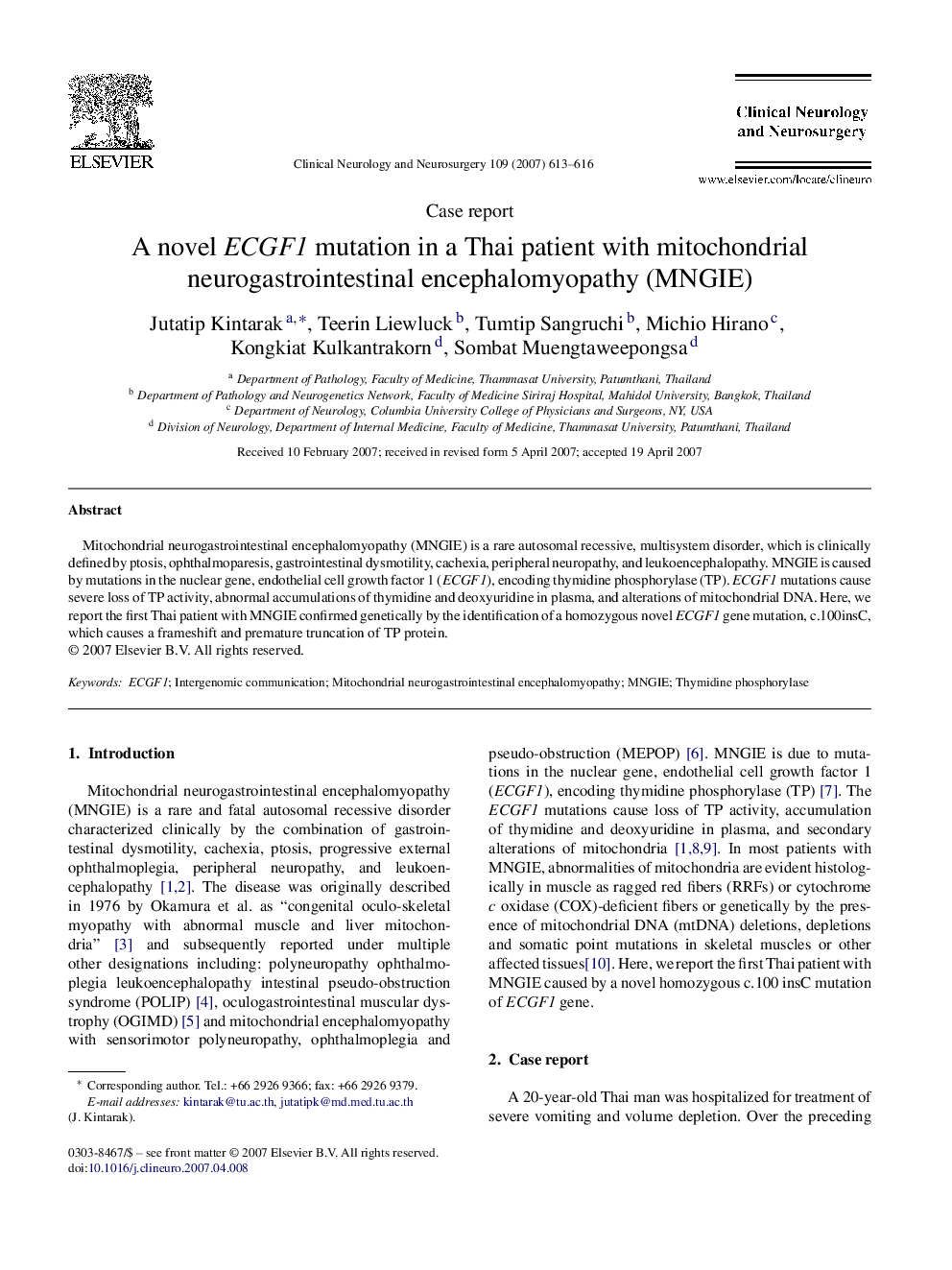| Article ID | Journal | Published Year | Pages | File Type |
|---|---|---|---|---|
| 3041939 | Clinical Neurology and Neurosurgery | 2007 | 4 Pages |
Mitochondrial neurogastrointestinal encephalomyopathy (MNGIE) is a rare autosomal recessive, multisystem disorder, which is clinically defined by ptosis, ophthalmoparesis, gastrointestinal dysmotility, cachexia, peripheral neuropathy, and leukoencephalopathy. MNGIE is caused by mutations in the nuclear gene, endothelial cell growth factor 1 (ECGF1), encoding thymidine phosphorylase (TP). ECGF1 mutations cause severe loss of TP activity, abnormal accumulations of thymidine and deoxyuridine in plasma, and alterations of mitochondrial DNA. Here, we report the first Thai patient with MNGIE confirmed genetically by the identification of a homozygous novel ECGF1 gene mutation, c.100insC, which causes a frameshift and premature truncation of TP protein.
